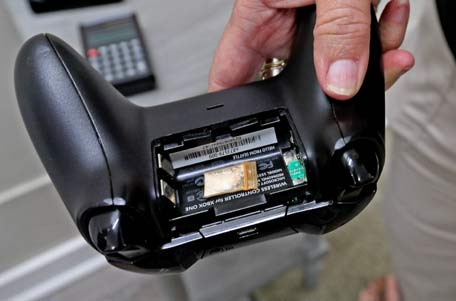The Robert Hanselman Domestic Agency has been approached by various domestic professionals on how to handle certain situations. When it comes to the abuse of medication, alcohol, etc. we have found every situation is different. Please take the time to read what we suggest and who we recommend contacting with regards to addiction problems and overcoming them with in the private household.
Addiction Guide for Household Professionals
How to identify, bring to light, and help the people you serve
We are all aware that everybody struggles with issues throughout their lives privately and publicly, we also know there are varying degrees of severity when it comes to these issues. With a strong background in high net worth families, the team at In House Group understands and is able to relate to the struggles you may be going through in your own household, whether it is your home or the home you work in.
There is an old saying “the maids know everything” because it is the job of a domestic professional to be keenly aware of habits, likes, and dislikes in order to provide an exceptional living environment for the family they serve. As a domestic professional this sometimes means you witness the unsightly or not so glamorous aspects of being human, it is to your credit that you are able to operate professionally and confidentially. If you are reading this, it may be because you have genuine concern that someone in your household may be indulging in a behavior that is taking them down a dangerous path that could ultimately harm them, others around them, and possible even yourself. In this post we will discuss how to see the signs of substance/behavior abuse, how to approach the issue, and making sure you are also making your safety and well-being a priority.
Recognizing issues can be in many forms. The most obvious are the attitudes, moods, and energy of someone. If they seem to be acting different from their normal selves, showing quick changes in mood, or even having paranoid outbursts that are consistently lingering; these may be signs that they are abusing or misusing certain substances such as drugs and alcohol. Addiction can also take place in the form of behaviors such as sexual activity, gambling, and someone being repeatedly taken advantage of for their money or resources. There are also environmental signs to addiction that you as a housekeeper or house manager may be more aware of than anyone else in their house as you are emptying trashes, putting things away in drawers, changing bedding, and cleaning bathrooms. Being so involved in the details of people’s most private spaces means you quickly pick up on their normal habits and also quickly pick up on when something is “off.”
You have determined you are not comfortable anymore working in a home knowing that someone is potentially suffering from an issue; What do you know? How you decide to move forward with bringing this issue to light is very delicate and you now have to make a decision on many potential outcomes, including even the security of your job. The team at The In House Group reminds you that when being surrounded by someone in an addictive state does not create a harmonious environment, and over time that will also impact you personally. Most of us as domestic professionals have witnessed toxic environments in homes that we are able to tolerate for a certain period of time, but ultimately, we know that is a stepping stone for us leading us to more positive places.
First, remember you are judged on your ability to be confidential when working in a household, the less people you speak with about someone, the better. Always go up your “chain of command.” If you are a housekeeper and start noticing things like liquor bottles in the closet trash, or the smell of vodka when you empty a water bottle, or alcohol hidden when you put clothes away; these actions are not normal. If they are persistent and you see effects on a someone that you work for, you may be saving their life by saying something.
As a housekeeper your household manager should be your point of contact, they generally have a closer relationship with the principals and can help you identify if an issue is necessary of the staff intervening. If there is not household management, trying to talk to your domestic recruiter for advice as they may be able to have the conversation for you and/or provide you with a less toxic working environment should the principal not be keen on helping or getting help with the issue.

If you approach a principal directly, they should see a side to you that they rarely or may never have seen; emitting deep genuine concern. If someone’s spouse, child, or relative in the house is struggling with a potentially life-threatening addiction, it should not be something that lightly affects you as a compassionate human being. The team at The In House Group can also help you prepare for this conversation and be readily available for your principal to advise them on how to move forward. If well received, this will truly show your authentic commitment and concern for the people in the household in which you serve. Many domestic professionals spend years, and even decades serving a single family, you are more than someone that picks up messes and makes things pretty.
When approaching your principal, it is best to do it at a time and place when you best feel your conversation will not be interrupted, perhaps even when the affected individual is not home. If meeting in their office or study, ask if you may close the door; this sets the tone that this is not a casual conversation. Also consider using words and phrases such as:
- “I hope I am not overstepping my boundaries”
- “After all of these years, you know I would not bring up something delicate unless I truly felt someone may be in danger”
- “My job and your happiness are some of the most important things to me, and that is why I need to have a sensitive conversation with you”
Maybe the conflicted individual is the child of the principal that you cared for in their younger years, but now as a young adult, you have noticed things that are leading them down dangerous paths. The years of service and dedication you have given to a family will undoubtedly be in your favor during this conversation:
- “You know I love John as one of my own children, and that is why I want to have this conversation with you”
- “I remember when I started working for this family and John was in 8th grade, but now that he is home from college for the summer, I am worried about him”

Remember that The In House Group is not just a resource for helping you have this conversation and identifying potential addictive behaviors, but we are ultimately a resource for the household in which you serve. We provide a non-traditional addiction treatment approach to individuals that have great things at stake should their addictive behaviors overtake their lives to a point of extremely difficult return. We are also there for individuals who are feasibly unable to attend a traditional addiction recovery program in which they are “checked in” for weeks or months at a time. Many executives in companies and organizations that have extensive leadership roles can highly benefit from this type of recovery therapy by remaining at home and work and working through the environmental triggers that would ultimately be waiting there for them when they return home from a traditional recovery treatment center.
The The In House Group will continue to provide you with resources, topics, and information on how to approach sensitive addiction situations and help you or your loved ones with creating an in home addiction treatment plan that not only delivers results, but creates an even brighter future for all parties involved.



